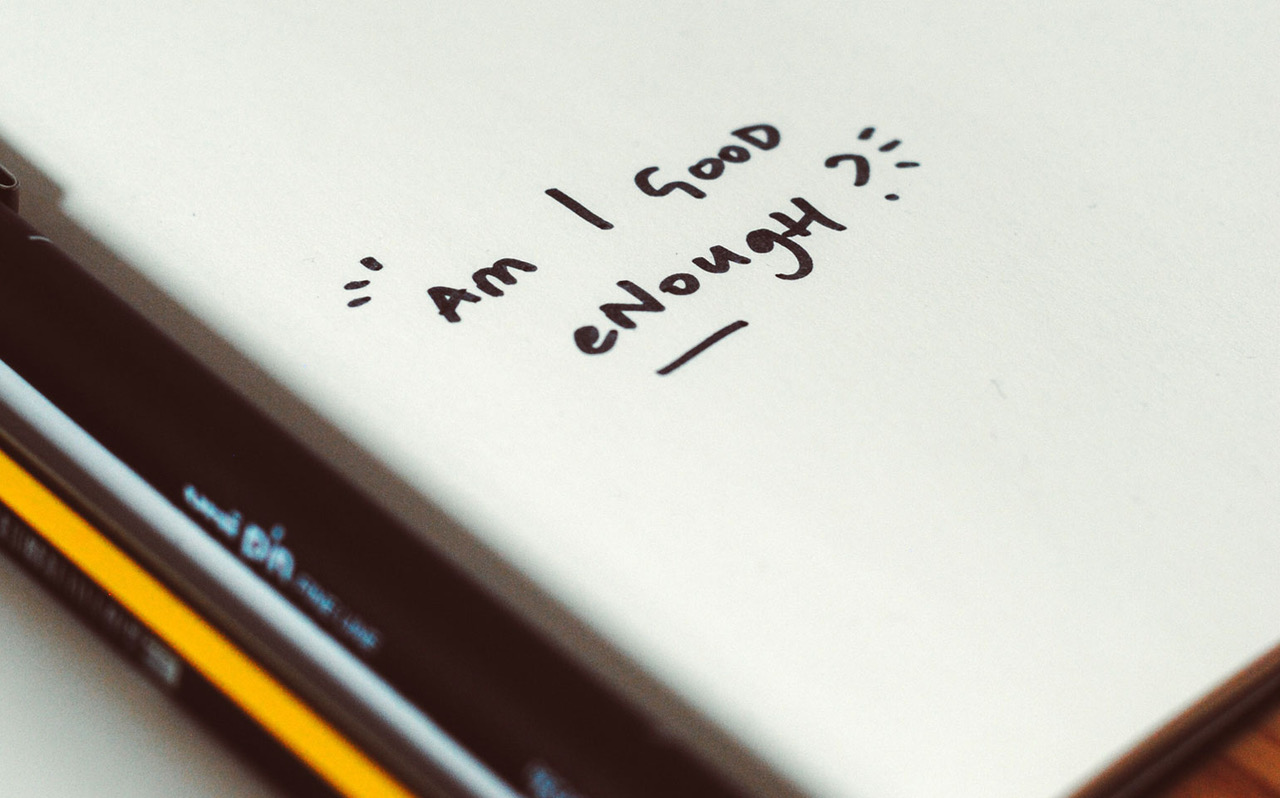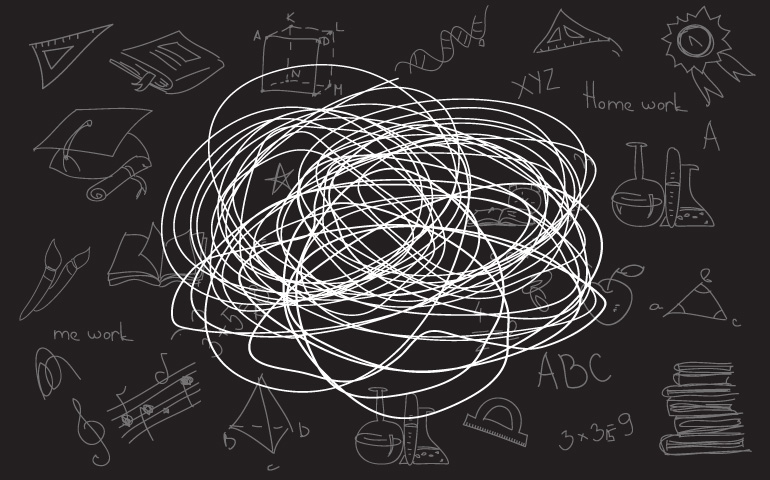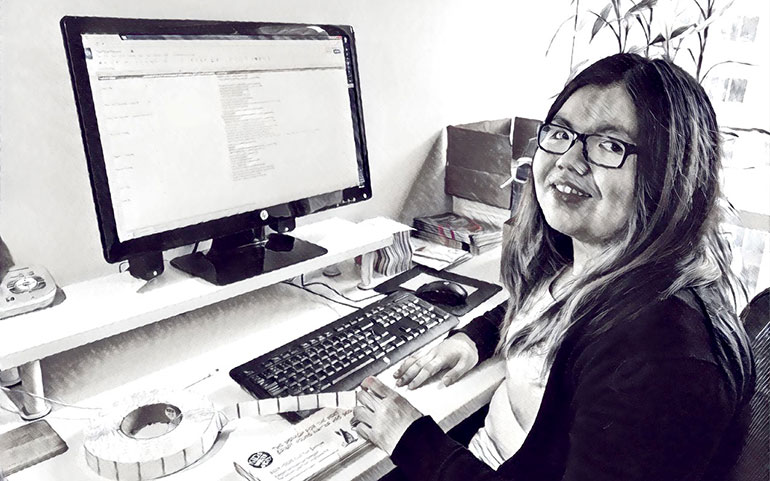The Unrealistic Media Portrayals Shaping the Teenage Lens
As a child, I distinctly remember being drawn to certain shows on television, with plots and characters who seemed to be written to follow a predictable pattern. Most of the popular media I consumed, before even starting high school, was centered around teenagers and their exhilarating, boisterous lives on the television screen. I watched sitcoms about high schoolers who would spend their free time doing anything but schoolwork. Occasionally, I came across television shows with different, yet equally distorted, depictions of teenagers; sometimes they were violent and rebellious, and other times they simply did not look or act like teenagers, opening a pool of insecurities for the shows’ vulnerable adolescent audiences.
Now a teenager myself, I have encountered a wide range of stances on the portrayals of youth in media; I have come across criticisms online, from my peers, and through my own judgement. As television and media invariably depict teenagers in a polarizing manner, I continue to find flaws in their representation, leading me to uncover the ways in which these stereotypes and flawed, unrealistic characterizations have a negative impact on adolescent minds.
One issue I have noticed is the casting of teenagers in television and film and how it seems to create subconscious expectations in the minds of teenagers, about both themselves and the world around them. The process of casting adults to play high school students, for example, is no groundbreaking development in the film industry and it is often supported by the notion of not wanting minors to take part in the making of graphic content. However, while there are certainly grounds for such casting decisions under many circumstances, I believe that it is also sustained by the fact that casting older actors opens up opportunities for media production, especially ones in which exploitative content is involved. There are numerous ways in which the exaggerated depictions of teenagers’ appearance and behaviours can cause issues for young audiences.
Many filmmaking companies fail to acknowledge that youth are not only entertained, but also heavily influenced by the media they produce. Age gaps between actors and characters can be damaging to the self-representation of young audiences and, in my experience, may unleash a wave of doubt and insecurity in the vulnerable minds of individuals who are already struggling to adapt to changes that come with growing up. When I was younger, the appearances of older actors that had been enhanced with makeup and other forms of modification had an effect on the way I perceived myself, others, and my external surroundings.
Moreover, these characters were almost always written under the influence of the traditional “rebellious, wild teenage”’ stereotype, and would engage in activities and behaviours that most adolescents in real life simply do not have the time for.
These portrayals of teenage behaviour can also have an impact on the way individuals view themselves. In my personal experience, watching characters on television constantly engaging in fun and interesting activities while completely disregarding their academic and personal life caused me to suffer from the abstract concept of FOMO (otherwise known as the fear of missing out). I would bombard myself with self-scrutinizing questions: Why did I not engage in fun activities at every moment of the day? Was I missing out by doing other important things? Was there something wrong with me because I wasn’t even interested in going out all the time? These questions followed me as I navigated my way throughout high school, poking the back of my mind and threatening to reach the surface every time I compared my experiences to those of people around me.
What ultimately helped me to overcome these thoughts was confiding in others, especially my friends. This helped with realizing that people around me shared the same beliefs and fears. However, the effect was long-lasting, and I believe the way that teenagers are depicted will continue to have a negative impact on adolescents, who build expectations for themselves at a young age.
Another issue I came across while analyzing media portrayals of youth was the way it seemed to categorize and label young people, especially high schoolers and even middle schoolers. The concepts of jocks, nerds, and artsy kids seemed innocent at first glance; however, over time, I began to realize the implications these labels had, and the way they limited people. I disliked the way characters were looped into groups, forced to hang out with a certain crowd or take interest in specific things. Looking back now, I realize how much I used to believe in these labels and limitations when I was younger, and how I truly thought they had meaning to them. Upon entering high school and seeing that people weren’t confined into a box of presumptions and restraints, I realized how silly it was to think labels could truly define someone. Nonetheless, I also think it is important for one to recognize how damaging these labels can be, and how they can harm the way a young person sees themself and those around them, making it increasingly difficult to establish a sense of self-worth and understanding.
There were many ways in which watching characters on the big screen live an impractical life made an impact on both me and others. I often see people discuss how rewatching shows from their youth made them come to terms with unrealistic expectations they set, whereas other people can hardly believe the actors they used to watch on television were meant to portray someone of their current age. I still struggle with accepting the fact that I do not need to look or behave a certain way in order to have a fulfilling teenage experience.
I firmly believe that companies need to be more careful in the ways that they portray certain people and behaviours in the media, and they need to be more considerate of the issues their depictions can cause in the susceptible minds of teenagers and youth.
My advice to any young person would be to not let anything define you; we are more than the expectations we set for ourselves, our social lives, and the labels we create. That being said, we are also not characterized by our academic achievements, or anything else you probably feel is the most important thing in the world right now. You should never feel the need to limit yourself by looking or acting in a certain way or chasing achievements. You are at a perfect point in your life in which you can balance experimenting with these aspects of your life, while also maintaining well-being as your priority. Enjoy it!




